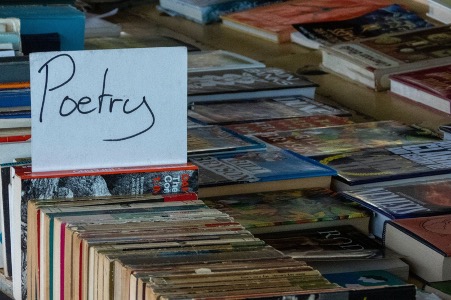At the heart of Belfast, amidst the city’s Black History Month festivities, a celebration unfolded, resonating deeply with the voices and narratives of Black migrant women.
by Laura Rodriguez-Davis
Poets and enthusiasts alike gathered at the Linen Hall Library in Belfast, Northern Ireland, for a curated reading of poetry and conversation as part of the Belfast International Arts Festival during Black History Month. Curated by poets Raquel McKee and Nandi Jola, The Golden Shovel-Reflections on Windrush and the African and Caribbean Communities featured poems focusing on the experiences of Black migrant women. The event was hosted with Quotidian-Word on the Street and Poetry Jukebox. This multi-nation initiative brings audio poetry recordings to the public via funnels in public spaces.
Following an introduction and reflection on Belfast’s Black history from poet Maria McManus, the first reader, Neo Gilson, took to the stage to recite “Prisoners of Hope.” Gilson, a poet and storyteller based in Cork, Ireland, spoke about the conditions faced by refugees and asylum seekers and shared her own experience of immigration from South Africa. She described being “stuck between the crevices of hope and fear” and concluded with the affirmation, “I am worthy. I am industrious.”
Reading a poem entitled “Precious,” Therese Kieran discussed meeting Precious and Angel, a Ugandan daughter and mother in Ireland’s asylum seeker programme Direct Provision, which has faced severe criticism for its poor living conditions and slow processing times. Kieran reported that Precious was currently enrolled in a culinary arts programme in Drogheda. The poet queried, “Can you choose first now, Precious?”

Event curator and poet McKee then explained the Golden Shovel poetry form in which the words of a borrowed line from another poem become the final word of each line of a new poem. She also shared a greeting from Jola, who could not attend the reading. Then, she discussed the United Kingdom’s refusal to participate in the International Decade for People of African Descent, a United Nations global resolution aimed at recognition, justice, and development for those descended from African nations. According to McKee, the UK has claimed they already have sufficient measures in place to address racial discrimination and, therefore, have no need to acknowledge the UN initiative.
The audience then listened to McKee’s poem “Maangamizi’s Call,” read by the author herself. The rhythmic verses drew attention to the atrocities of the transatlantic slave trade, African genocide, colonisation, and racial injustice. After finishing her poem, McKee noted the importance of recognising Northern Ireland’s Black history but not at the expense of complacency towards contemporary racial justice progress.
Before concluding the event, McKee, Gilson, Kieran, and McManus returned to the stage for a panel Q&A with the audience. Questions sparked conversation regarding the dwindling Caribbean population in Belfast, the need to use the arts to raise awareness of the conditions faced by Black migrants, and the systemic inequality of care institutions. The afternoon was appropriately brought to a close with poetry read by McManus.
An intimate gathering, The Golden Shovel-Reflections on Windrush and the African and Caribbean Communities beautifully paid homage to the Black women migrants who have braved injustice, discrimination, and systemic failures to rebuild a home in a new land. As the UK celebrates Black History Month, this poetic expression reminds us as, as McKee affirmed, Black history “should be a part all of our lives, all the time.”
The full curated selection of poems for The Golden Shovel can be found here.
